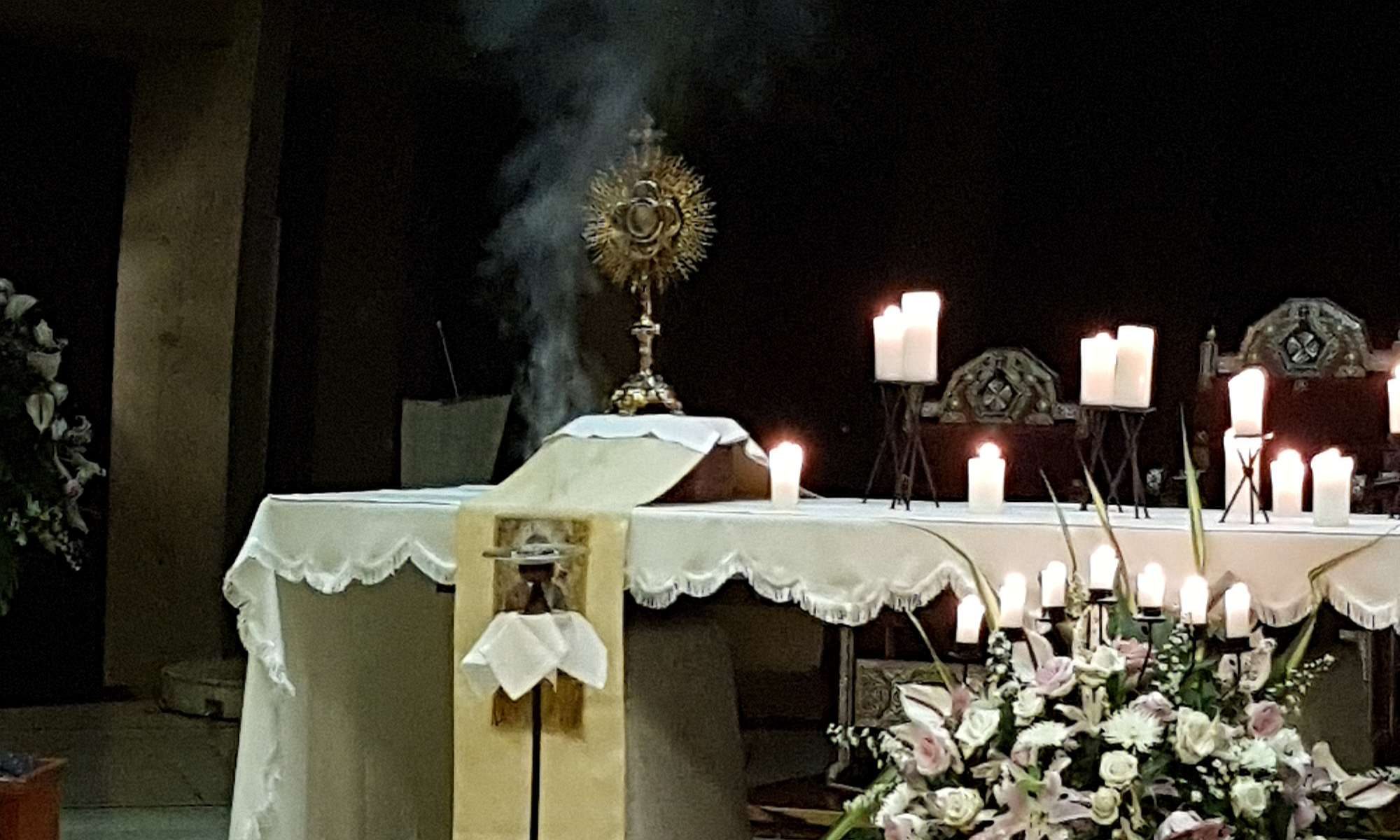#VisperasFrayNelson para el Martes Santo
[REPRODUCCIÓN PERMITIDA – Ayúdanos a divulgar este camino de oración en las redes sociales, blogs, emisoras de radio, y otros medios.]

Alimento del Alma: Textos, Homilias, Conferencias de Fray Nelson Medina, O.P.
#VisperasFrayNelson para el Martes Santo
[REPRODUCCIÓN PERMITIDA – Ayúdanos a divulgar este camino de oración en las redes sociales, blogs, emisoras de radio, y otros medios.]
#LaudesFrayNelson para el Martes Santo
[REPRODUCCIÓN PERMITIDA – Ayúdanos a divulgar este camino de oración en las redes sociales, blogs, emisoras de radio, y otros medios.]
#VisperasFrayNelson para el Lunes Santo
[REPRODUCCIÓN PERMITIDA – Ayúdanos a divulgar este camino de oración en las redes sociales, blogs, emisoras de radio, y otros medios.]
#LaudesFrayNelson para el Lunes Santo
[REPRODUCCIÓN PERMITIDA – Ayúdanos a divulgar este camino de oración en las redes sociales, blogs, emisoras de radio, y otros medios.]
Segundas #VisperasFrayNelson para el Domingo de Ramos, ciclo B
[REPRODUCCIÓN PERMITIDA – Ayúdanos a divulgar este camino de oración en las redes sociales, blogs, emisoras de radio, y otros medios.]
#LaudesFrayNelson para el Domingo de Ramos, ciclo B
[REPRODUCCIÓN PERMITIDA – Ayúdanos a divulgar este camino de oración en las redes sociales, blogs, emisoras de radio, y otros medios.]
Primeras #VisperasFrayNelson para el Domingo de Ramos, ciclo B
[REPRODUCCIÓN PERMITIDA – Ayúdanos a divulgar este camino de oración en las redes sociales, blogs, emisoras de radio, y otros medios.]
#LaudesFrayNelson para el Sábado V de Cuaresma
[REPRODUCCIÓN PERMITIDA – Ayúdanos a divulgar este camino de oración en las redes sociales, blogs, emisoras de radio, y otros medios.]
#VisperasFrayNelson para el Viernes V de Cuaresma
[REPRODUCCIÓN PERMITIDA – Ayúdanos a divulgar este camino de oración en las redes sociales, blogs, emisoras de radio, y otros medios.]
#LaudesFrayNelson para el Viernes V de Cuaresma
[REPRODUCCIÓN PERMITIDA – Ayúdanos a divulgar este camino de oración en las redes sociales, blogs, emisoras de radio, y otros medios.]
#VisperasFrayNelson para el Jueves V de Cuaresma
[REPRODUCCIÓN PERMITIDA – Ayúdanos a divulgar este camino de oración en las redes sociales, blogs, emisoras de radio, y otros medios.]
#LaudesFrayNelson para el Jueves V de Cuaresma
[REPRODUCCIÓN PERMITIDA – Ayúdanos a divulgar este camino de oración en las redes sociales, blogs, emisoras de radio, y otros medios.]
Segundas #VisperasFrayNelson para la Solemnidad de la Anunciación del Señor
[REPRODUCCIÓN PERMITIDA – Ayúdanos a divulgar este camino de oración en las redes sociales, blogs, emisoras de radio, y otros medios.]
#LaudesFrayNelson para la Solemnidad de la Anunciación del Señor
[REPRODUCCIÓN PERMITIDA – Ayúdanos a divulgar este camino de oración en las redes sociales, blogs, emisoras de radio, y otros medios.]
Primeras #VisperasFrayNelson para la Solemnidad de la Anunciación del Señor
[REPRODUCCIÓN PERMITIDA – Ayúdanos a divulgar este camino de oración en las redes sociales, blogs, emisoras de radio, y otros medios.]